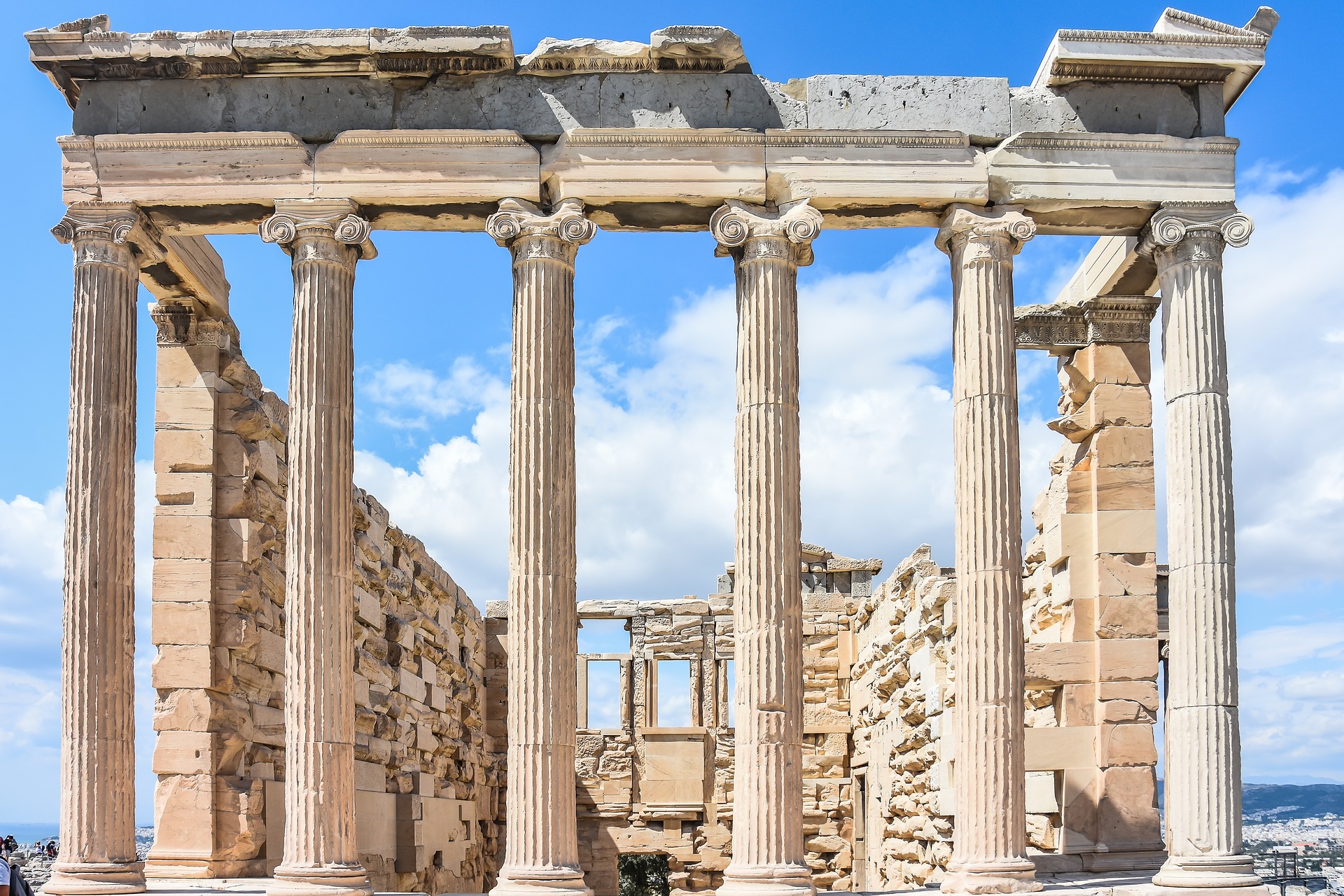For anyone dreaming of a sea escape, a visit to ancient monuments or numerous islands, these dreams are now possible, as Greece has opened its borders to visitors since May 14.
After a period of isolation, Greece reopened to some tourists, not forcing them to isolate themselves upon arrival in the country. This announcement was made back in April, when the latter lifted quarantine for member states of the European Union and a number of other third countries.
Despite the outbreak of COVID-19, the Greek authorities have constantly called for measures to safely restore the travel and tourism sector to prevent further financial losses and revive the industry by the summer season.
However, the country continues to maintain strict entry restrictions for other countries due to the pandemic situation.
Who is allowed to go to Greece this summer?
On May 14, Greece opened its borders to people from all over the world who want to visit the country in the summer season to help the country’s tourism sector recover from the losses suffered by the COVID-19 pandemic.
Greece currently allows unimpeded entry for anyone coming from the European Union and the Schengen area, including Andorra, Iceland, Liechtenstein, Norway, Switzerland, San Marino, the Vatican and Monaco.
In addition to EU / Schengen countries, Greece also welcomes travelers from other countries who have recently reported low rates of COVID-19 infection. Thus, entry to Greece is allowed for arrivals from the following third countries:
Albania
Armenia
Australia
Azerbaijan
Bahrain
Belarus
Bosnia and Herzegovina
Brunei
Canada
China
Israel
Japan
Jordan
Kosovo
Kuwait
Lebanon
Moldova
Montenegro
New Zealand
Northern Macedonia
Qatar
Russia
Saudi Arabia
Serbia
Singapore
South Korea
Turkey
United Arab Emirates
Ukraine
United Kingdom
“For the Russian Federation, from June 30, passengers must carry a negative PCR molecular test result taken from the testing laboratory 72 hours before arrival, or a negative antigen (rapid test) result obtained 48 hours before arrival, regardless of whether vaccinated or not, “the government stressed.
Earlier it was announced that from July 8, Armenia, Azerbaijan, Brunei and Moldova will be added to the list of third countries that are allowed to enter Greece without quarantine.
More recently, Greek authorities have noted that Russian passengers bound for Greece will now have to pass a negative COVID-19 test and pass another test upon arrival.
Arrivals from any country outside the EU / Schengen area or from any third country not described above are not allowed to enter Greece.
Greece also opened its borders to travelers from the United States after they remained banned for more than a year. Travelers from the United States will be subject to the same requirements as nationals of other countries who are allowed to enter.
Greece has been banning third-country nationals from entering for several months.

Restrictions on entry to Greece
Before entering Greece, everyone must fill out the passenger search form no later than the day before arrival. The form requires detailed information about the place of departure of passengers, the duration of the previous stay in other countries, as well as the address of their stay in Greece.
All persons entering Greece must provide a negative COVID-19 test result obtained within 72 hours of arrival in Greece.
In addition, travelers within the above limits, as well as persons traveling from EU / Schengen countries, are allowed to enter Greece provided that they provide one of the following acceptable documents:
- Certificate confirming vaccination against COVID-19: at least 14 days must have elapsed from the date of administration of the second dose of vaccine to allow entry. Vaccines approved in Greece include Pfizer-BioNTech, Moderna, AstraZeneca-Oxford, Novavax, Johnson & Johnson, Sinovac Biotech, Sputnik V, Cansino Biologics and Sinopharm.
The vaccination certificate is recognized if it is issued by a public authority of each country in English, French, German, Italian, Spanish and Russian.
The vaccination certificate must include the name of the traveler, the type of vaccine, the dose of COVID-19 vaccine administered and the date of administration.
- Proof of a negative COVID-19 test result: the test must not be older than 72 hours when entering Greece. Children under the age of six do not need testing.
- Certificate confirming recovery from COVID-19 for the last nine months: The certificate of recovery must be issued by a government agency or a certified laboratory. Travelers may also provide a preliminary positive PCR test performed at least two months before arrival and no later than nine months before arrival.
All three of the above certificates must contain key identification information, including the full name of the holder, which must match the name on the passport or any other recognized travel document.
Foreigners can also provide a digital passport COVID-19 for permission to enter the country in paper or electronic form, according to SchengenVisaInfo.com.
Regardless of the certificate, travelers can undergo a mandatory random medical examination performed using a targeted sampling system, which means that they need to pass a rapid test for antigen. In case of refusal to cooperate, the authorities have the right to refuse entry into the country.
In addition, if the result of the random test is positive, travelers and their companions will be placed in quarantine hotels, where they will undergo further health tests. They must remain in quarantine for at least ten days, and the costs will be covered by the Greek authorities.

Entry to Greece by land, air or sea
Entry to the land border of an insignificant nature is allowed through the checkpoints Promahonas, Ormen, Evzona, Niki, nymphs, Doyrani, Kipi, Crystallopigi, Kakawa, Exohi and Kastanis on a round-the-clock basis.
However, it was noted that at the Kipi and Kastanis border crossings there is a limit of 1,500 passengers per week.
As for those who plan to use public transport during their stay in Greece, they must always wear a protective mask in public places, including airports.
Passengers are allowed to enter Greece through all international airports. However, citizens of non-EU / Schengen countries are strongly encouraged to use direct flights to Greece to avoid the country’s transit requirements.
What to expect when visiting Greece?
Archaeological excavations are open to visitors throughout Greece, with the restriction of simultaneous participation of up to 20 people. During their archeological visits, everyone must wear a mask and adhere to physical distancing measures.
There are also restaurants, cafes and bars. However, the service is provided only in open areas, and the maximum number of people who are allowed to sit at one table is six people. Those who are waiting for a table should always wear a mask.
Moreover, theaters, concerts and other performances are also allowed, but only with 75 percent capacity in open spaces.
For those wishing to spend time on the beach, the authorities emphasize that per 1000 m2 of beach area is allowed to accommodate no more than 80 people. In addition, only two people can use one umbrella, except for families.
Public transport will run at only 65 percent load, while tourist and tour buses will run at 85 percent load.
Greece currently has a national curfew from 1:30 to 5:00, which means tourists can stay outside even after midnight.
If the level of infection remains stable, Greece intends to completely abolish the curfew in July.
Travel insurance in Greece is a prerequisite for travel during the COVID-19 pandemic
It is strongly recommended that all people who want to travel to Greece or any other country this summer purchase an extended travel insurance package that covers epidemic and pandemic situations.
The insurance guarantees that in case of cancellation due to the situation with COVID-19 most of the money spent on the reservation will be refunded.
Digital passport of Greece on COVID-19 in the EU
Greece has successfully joined the EU gates after the country passed technical tests and began issuing the first EU passports at COVID-19.
The country presented the first European digital passport COVID-19 in late May, when Greek Prime Minister Kyriakos Mitsotakis stressed that the system would be launched in the country before the deadline set by Brussels on July 1, which turned out to be true.
In addition, while issuing a passport in Athens, Mitsotakis called on other EU countries to open the summer season to help travel and tourism recover from the financial losses caused by the pandemic.
The European Union has established a COVID-19 vaccination passport in the EU to restore travel safety within the unit.

The situation with COVID-19 in Greece
Like other European countries, Greece has been hit hard by the COVID-19 pandemic. However, the country managed to keep the situation under control by introducing nationwide isolation measures.
According to the World Health Organization (WHO), as of August 12, 521,399 cases of COVID-19 infection and 13,118 deaths had been reported in Greece. In the last 24 hours alone, 4,614 new cases of coronavirus infection have been detected in the country.
To date, at least 10,875,211 doses of COVID-19 vaccine have been administered in the country, meaning that about 54.2% of the population has received at least one dose of the vaccine, while about 50.5% have been fully vaccinated.
Vaccines offered in Greece include Pfizer-BioNTech, Moderna, Oxford-AstraZeneca and Johnson & Johnson.

